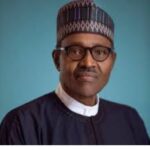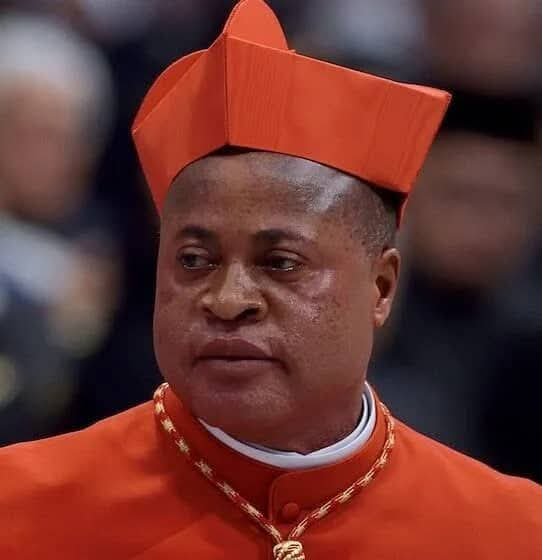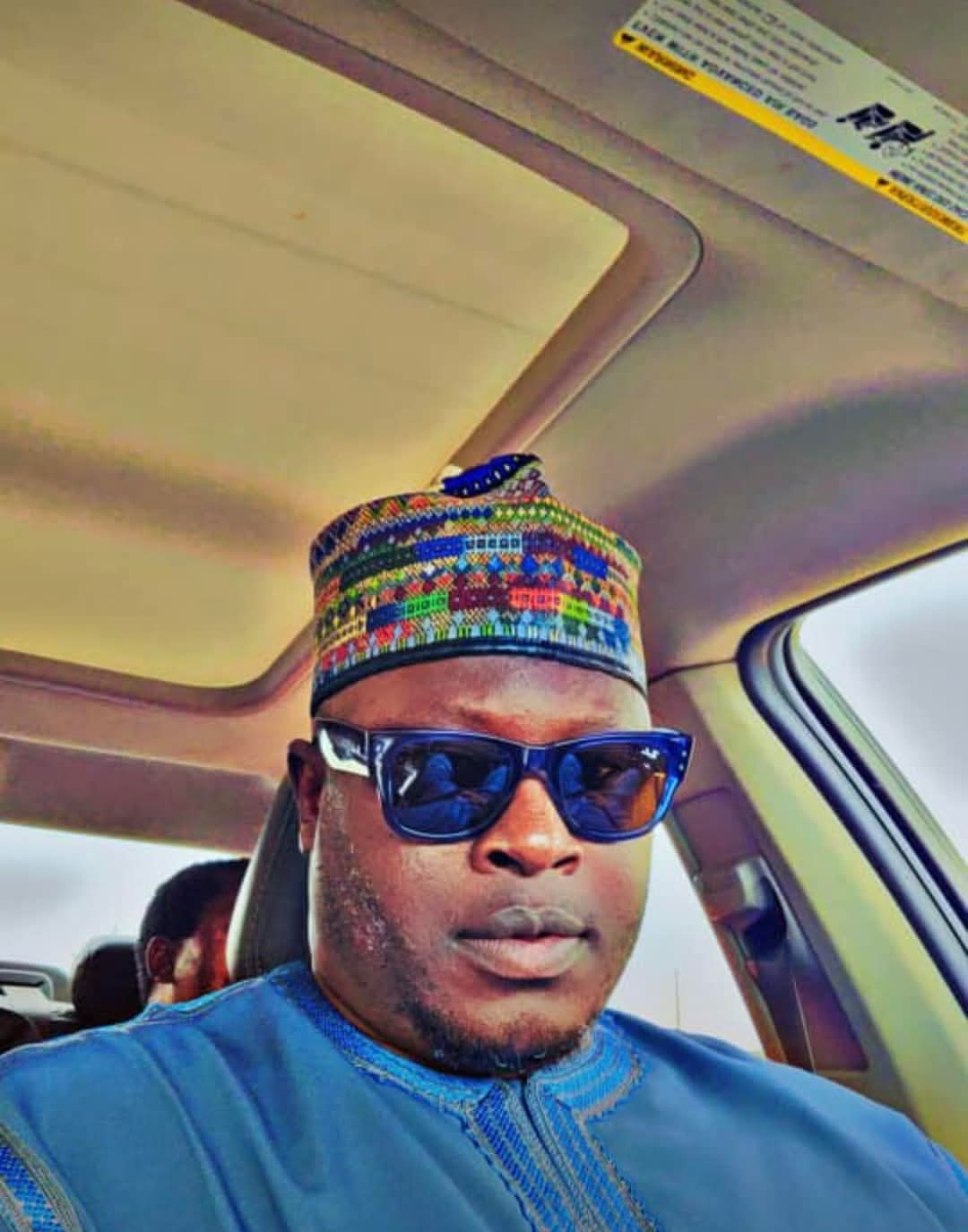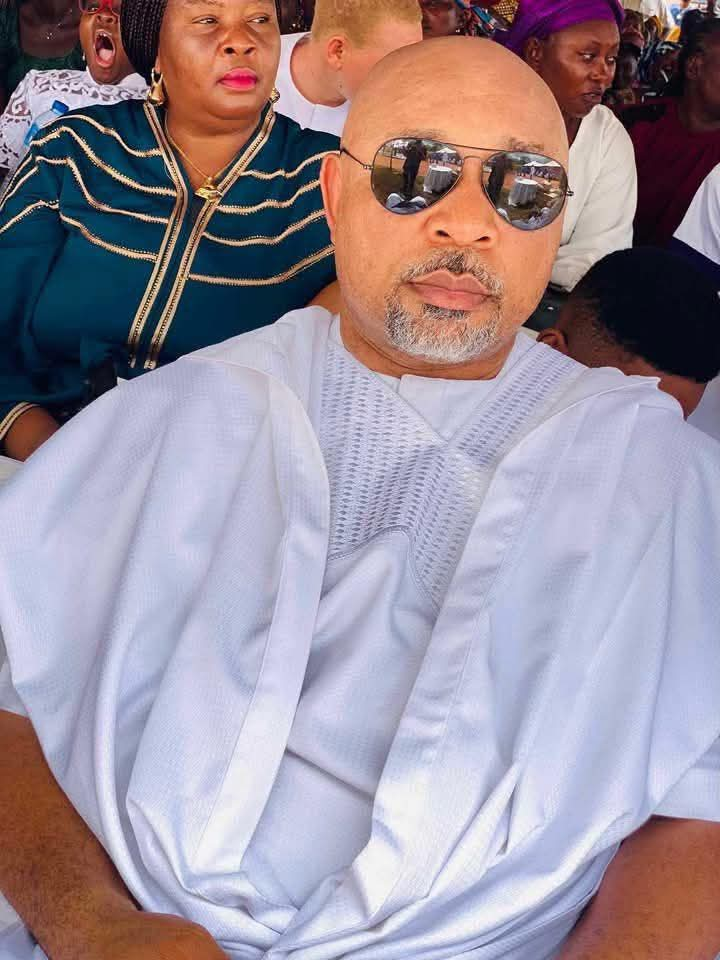By Fr. Theophilus Okpala.
In the sacred economy of salvation history, there are kairos moments—divinely charged instants where human history and divine providence collide with unmistakable intensity. One such moment now stands before His Eminence Peter Ebere Cardinal Okpaleke. As he prepares to inter the mortal remains of the Bishop of Rome, Pope Francis of blessed memory, and to enter the solemn conclave whose outcome shall echo across the ages, the cardinal enters a mystery not just of governance, but of grace, of discernment, and of transformation. He goes to Rome—but he shall not come back the same.
This moment is not merely ecclesial, it is eschatological. For it is not the burial of a pope alone, but the turning of a page in the Book of Apostolic Succession—a page to which Cardinal Okpaleke’s life, suffering, and witness may now be inked in new and prophetic ways.
Peter Ebere Okpaleke has borne in his flesh and soul the cruciform shape of episcopal identity. Rejected by a diocese he was appointed to serve, he became an icon of what Pope Francis later called the “persecuted shepherd.” His episcopal consecration was met with resistance, not for moral failings nor for doctrinal error, but for reasons rooted in division, tribalism, and a failure to recognize the universality of the Church. Yet, like the Suffering Servant, he did not open his mouth in retaliation. He went instead into a kind of internal exile—a tomb of humiliation from which God would one day raise him.
This experience aligns him not with power, but with the Paschal Mystery. He is a man familiar with ecclesial sorrow and spiritual obedience. In the crucible of rejection, his soul has been refined; in the silence of being sidelined, he has learned the language of divine patience. Such a man does not go to Rome as a mere elector—he goes as one already initiated into the spiritual drama of death and resurrection.
To go to Rome is not simply to travel geographically; it is to enter symbolically into the heart of Catholicity. Rome is not merely a place—it is an ecclesiological reality. It is the Petrine center, the visible sign of unity, the city sanctified by the blood of apostles and the tears of saints. It is where the visible Church speaks most clearly to the invisible mysteries.
Cardinal Okpaleke’s journey to Rome is thus a pilgrimage of transformation. In the ancient tradition, pilgrims would chant the Psalm of Ascents, moving from the lowlands of daily life into the highlands of God’s presence. In like fashion, Okpaleke ascends—not just to Rome—but to the inner chamber of God’s mysterious will.
He goes not merely to vote, but to be read by the Spirit—scanned by that eternal fire which burns away the dross and refines the gold. He goes to Rome, not to come back the same, because no one who has touched the hem of divine election—either as elector or elected—can return unchanged.
In the Sistine Chapel, beneath Michelangelo’s fresco of the Last Judgment, the cardinals shall pray, discern, and cast lots like the apostles before them. This is not mere politics cloaked in incense—it is Pentecost retold. The conclave is the Church’s Upper Room. And Cardinal Okpaleke enters it carrying not ambition, but scars—making him, perhaps, more fit to hear the Spirit than most.
What if the Spirit speaks not in the thunder of renown, but in the whisper of the wounded? What if the next Peter is one who has already been crucified, in a manner of speaking, by the very Church he is now called to shepherd? The mystery remains hidden, but the pattern of God is consistent: He exalts the humble and raises the lowly.
Whether Okpaleke emerges as pope or not is a matter of divine will. But that he enters the conclave transfigured by suffering and steadied by grace is a matter of fact. He shall come back, but not the same. And perhaps, even if he does not emerge in white, he shall return bearing something of the papal heart—enlarged by mercy, matured by silence, and inflamed by fidelity.
Should Cardinal Okpaleke return to Nigeria—or be sent forth to the ends of the earth—his witness shall carry new weight. For to see the Church from Rome is to see it whole. It is to see the tears of Ukraine and the wounds of Africa, the laments of Latin America and the lost sheep of Europe. And to carry that vision back into one’s episcopal or pastoral context is to minister not just as a Nigerian, but as a universal shepherd in miniature.
“Once you have turned back, strengthen your brethren,” said Christ to Simon Peter. If those words echo within Cardinal Okpaleke’s heart, then he will return with a Petrine soul—even if not the Petrine office.
In this moment, the Church is in travail. The world scoffs, scandals abound, and the barque of Peter seems battered by headwinds both without and within. But into this storm walks a cardinal formed by fire, matured in hiddenness, and now summoned to the very center of ecclesial discernment.
Peter Ebere Cardinal Okpaleke goes to Rome—not to come back the same. And we, the Church, kneel in vigil, that the will of God, not the will of men, may be done. Whether he emerges pope or returns to his flock, he will do so as one who has been in the presence of the consuming fire of God.
Amen.









